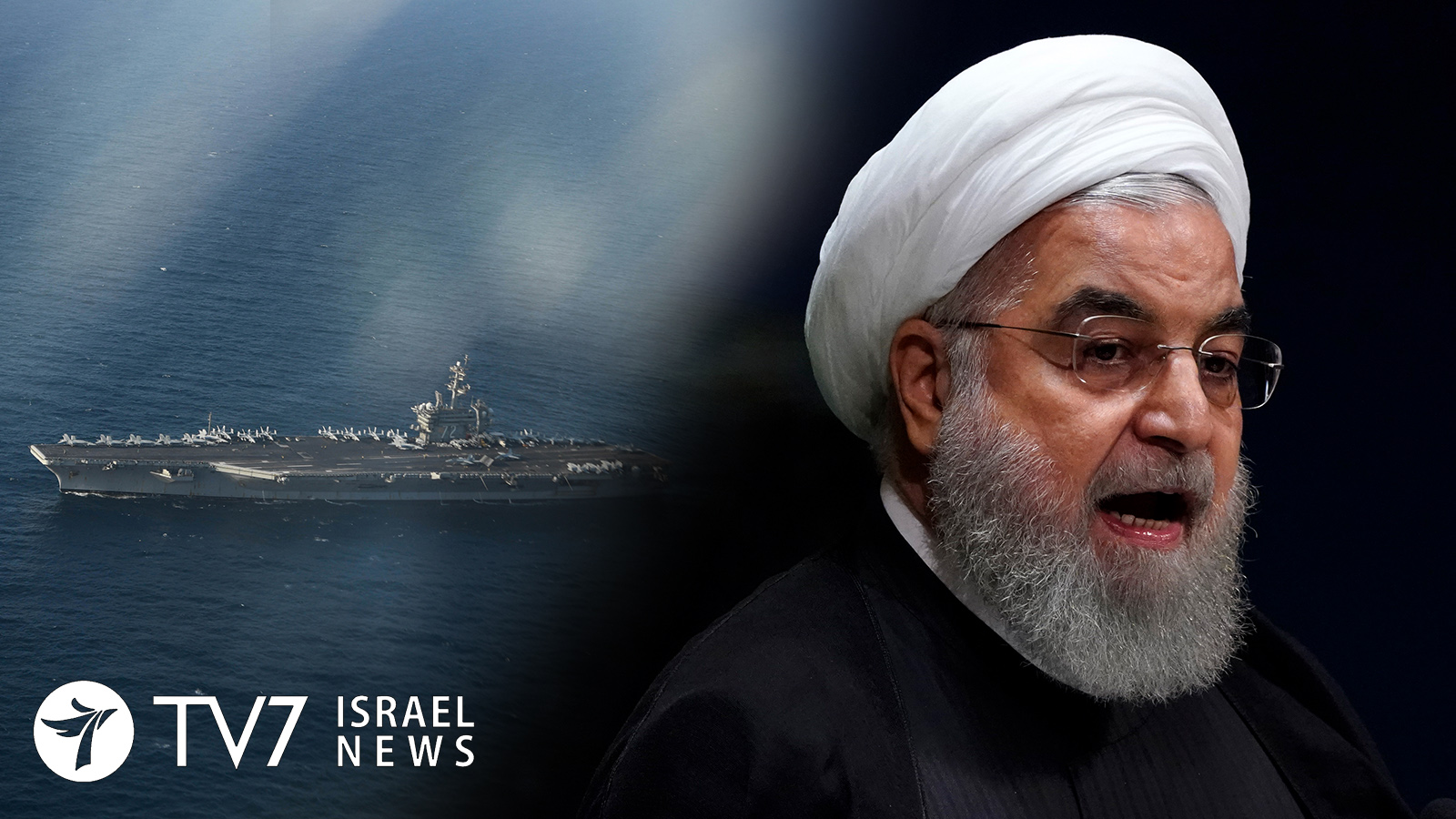Iranian President Hassan Rouhani addressed the U.N. General Assembly last night. Echoing Tehran’s Supreme Leader Ayatollah Ali Khamenei, he warned that the Islamic Republic will not negotiate with the U.S. unless Washington returns to the 2015 nuclear agreement and lifts all economic sanctions. He said: “On behalf of my nation and state, I would like to announce that our response to any negotiation under sanctions is no. The government and people of Iran have remained steadfast against the harshest sanctions in the past one and a half years ago and will never negotiate with an enemy that seeks to make Iran surrender with the weapon of poverty, pressure and sanction. If you require a positive answer, and as declared by the leader of the Islamic Revolution, the only way for talks to begin is return to commitments and compliance.”
The Iranian head of state also took the opportunity to threaten the international community that genuine security in the Persian Gulf in particular, and the Middle East at large, will only emerge once the Trump Administration withdraws all of its military forces from the region. According to Rouhani: “The security of the region shall be provided when American troops pull out. Security shall not be supplied with American weapons and intervention.” / “Distinguished Colleagues, our region is on the edge of collapse, as a single blunder can fuel a big fire. We shall not tolerate the provocative intervention of foreigners.”
President Rouhani also used the U.N.G.A. stage to call on world nations join an Iranian-led military coalition, to ensure – what the Islamic Republic perceives as – “security, peace, stability and progress in the Persian Gulf region.” In his words: “Upon the historical responsibility of my country in maintaining security, peace, stability and progress in the Persian Gulf region and Strait of Hormuz, I should like to invite all the countries directly affected by the developments in the Persian Gulf and the Strait of Hormuz to the Coalition for Hope meaning Hormuz Peace Endeavor.”
while Iranian leaders proclaim themselves the only viable party capable of reintroducing security to the volatile region; Saudi Arabia is now accusing the Islamic Republic responsibility for the September 14th attacks against on the Kingdom’s oil facilities. Moreover, Saudi Foreign Minister Adel Al-Jubeir told the U.S. Council of Foreign Relations in New York, that after the U.N.-commissioned investigation provides the necessary proof of Tehran’s direct responsibility, the Kingdom will move to build a case for whatever retaliation it ultimately decides to undertake. Adel al-Jubeir said: “We want to make sure that we avoid war at all costs, but we’re not going to sit there with our hands tied while the Iranians continue to attack us. We want to make sure that we know exactly what happened, exactly where it came from. We want to mobilize international support, and we want to look at all of our options – diplomatic options, economic options and military options – and then make a decision and move in a very deliberate and very effective manner. We’re talking to our allies in the U.S. and in Europe. We’re looking at various options, but ultimately our objective is to come to the conclusion of the investigation, make it crystal clear to the world that this is what happened and this is where it emanated from and then build the case for whatever actions we decide to take.”
Meanwhile, the United States is once again tightening the economic noose around the neck of Iran’s economy. U.S. Secretary of State Mike Pompeo announced the imposition of sanctions against a number of Chinese companies that knowingly breached Washington’s sanctions against Tehran. Speaking at an event called “United against nuclear Iran,” held on the sidelines of UN General Assembly, the American top diplomat said: “Today we are imposing sanctions on certain Chinese entities for knowingly transporting oil from Iran contrary to United States sanctions. Importantly, we are also imposing sanctions on the executive officers of those companies as well. And we’re telling China – and all nations – know that we will sanction every violation of sanctionable activity.”
Also at the United Nations headquarters in New York City; the five remaining international signatories of the 2015 Joint Comprehensive Plan of Action with Iran high level talks, to discuss the latest developments pertaining to the Islamic Republic’s scale back from its commitments under the nuclear deal. The Foreign Ministers of Russia, China, France, Britain, Germany and Iran participated in the meeting. European Union Foreign Policy Chief Federica Mogherini later reaffirmed that all the parties remain committed to the deal, and that its implementation is viewed as a vital interest to the international community. The top EU diplomat said: “Participants recalled that the JCPOA, as endorsed by the UN Security Council resolution 2231 of 2015, remains a key element of the global nuclear nonproliferation architecture and a significant achievement of multilateral diplomacy. They underlined the importance of the full and effective implementation of the JCPOA by all sides and confirmed their determination to continue all efforts to preserve the agreement which is in the interests of all.”
